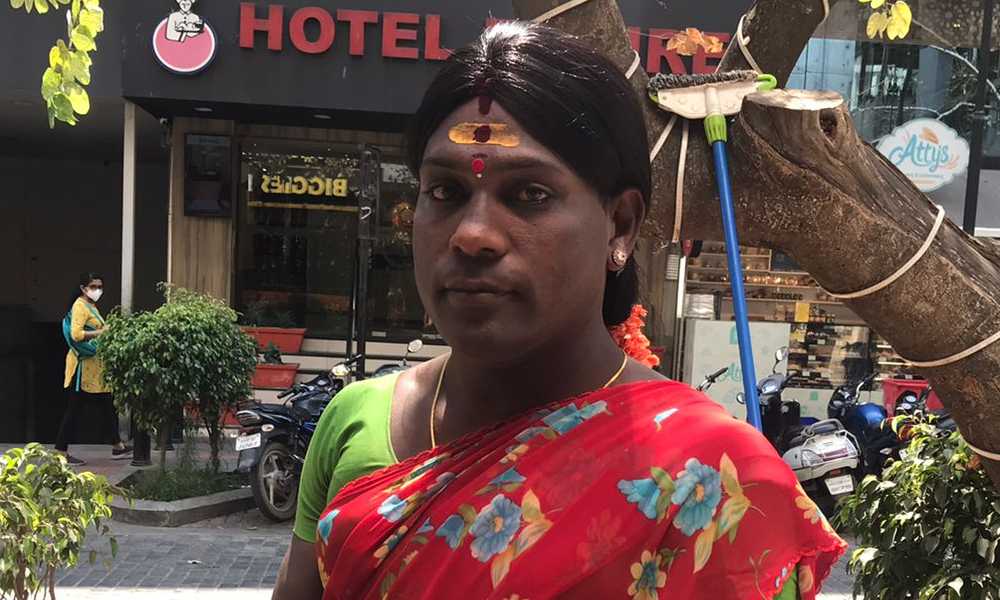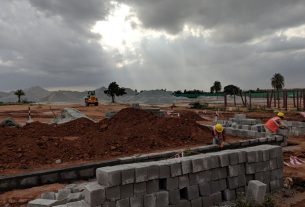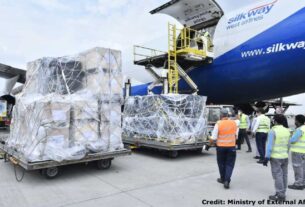The BBMP scheme’s implementation has been delayed by five years.
It has been five years. The Bruhat Bengaluru Mahanagara Palike (BBMP) had promised self-employment loans to the transgender community back in 2017. They haven’t seen any money yet.
In 2021, several transgenders blocked the entrance to the BBMP to protest this inaction. The commissioner had assured them a resolution in two weeks. There has been no progress till date.
The red tape
The applications are still under process, said Janardhan, deputy commissioner of BBMP’s welfare department. “We have constituted a redressal committee with 10 representatives from the transgender community. The process is being held up as we’re working with them on trying to figure out how to identify the right beneficiaries for the scheme,” he said.
This scheme applies to transgender people who have lived in Bangalore for the past three years. To start a business, they can receive a loan of 50 percent of the project cost, or Rs. 1.5 lakh, whichever is lower.
Mallu Kumbar, the state coordinator of the Karnataka Sexual Minorities Forum, is a member of the BBMP’s referral committee. He disagrees with several aspects of the scheme. “Existing transgender businesses—which really need help—are being completely ignored here. We are providing subsidies to new ventures while ignoring the many problems existing transgender-run businesses face today. Some of them barely have enough money to cover rent for their premises,” he said.
Isha is a 30-year-old transwoman looking to set up a street food unit. She had applied for the scheme in 2018. “Transwomen are mostly pushed into sex work. This venture was an attempt to rise from my circumstances,” she said. Without funding, Isha cannot leave her present life of exploitation and abuse. She has no idea as to the status of her application.
While the redressal committee debates who the beneficiaries should be, around 550 applicants are still waiting for an answer from the government.
A question of identity
A major hurdle for these applicants is the establishment of their gender identity. In 2014, the Supreme Courtpassed a judgement, allowing self-identification for transgender people. However, the government’s Transgender Protection Bill, 2019 had a provision of a ‘screening committee’, where transgender people had to get a medical certificate proving their gender identity. This provision was scrapped after several activists protested it.
The Transgender Persons (Protection of rights) Act, 2019 has a two-step verification process. A transgender person has to get a “transgender certificate” from a district magistrate, which can be done based on self-declared gender identity. But to get a “change in gender certificate”—which is required to legally change one’s gender on government documents—they have to provide medical proof of surgery. They cannot be counted into their preferred gender identity unless they undergo a medical procedure.
Uma, the director of Jeeva—a non-government organisation (NGO) working for transgender rights—said this makes it difficult for transgender people to actually obtain any of the benefits meant for them. “Most of the applicants under this scheme are trans-females. Transgender is not a monolithic concept; there are many different types of us. The rest of the trans people are rendered invisible,” she said.
The process is humiliating, she added. “If a man or woman is availing of government benefits, they don’t need a medical certificate. Their gender is accepted at face value. Are we any less human?” she said.
“Ask us what we want”
The crux here is the lack of transparency, said Uma. “Back in 2014, when the BBMP announced a budget of Rs. two crore for transgender welfare, we went to them and brainstormed ideas for education, skill development, grants for self-employment, even subsidies for trans-surgery. They announced a few schemes and shut us out of the process completely. We have no idea what’s going on,” she said.
Rakshitha, a trans activist, believes the problem is that the government is still unwilling to see the true extent of the transgender community’s problems and respond to their demands. “There was no survey conducted for this scheme. No one explained how to apply, they just announced a scheme, leaving us to scramble around. We’re pretty much like a volleyball here, shuttled between various groups, just looking for our rights” she said.
The stigma
According to the 2011 census, there were 20,266 transgenders in Karnataka. Inspite of several programs and the Transgender Protection Act, 2019, they still remain a marginalised community.
While government subsidies will help, they cannot erase centuries of social exclusion and stigma, said Rakshitha. “When we got housing, it was outside the city limits. Our areas are known as hijra colonies. People treat us like criminals,” she said.
Caste is also an issue, she added. “Most beneficiaries—if there be any—are of the upper-castes. What about the rights of the transgenders from backward castes? Our voice remains unheard,” she said.
Janardhan said the BBMP cannot give a deadline on when the disbursal of funds will begin. As the city’s businesses try to revive from the shock of the pandemic, the transgender community still awaits an opportunity for self-employment.




